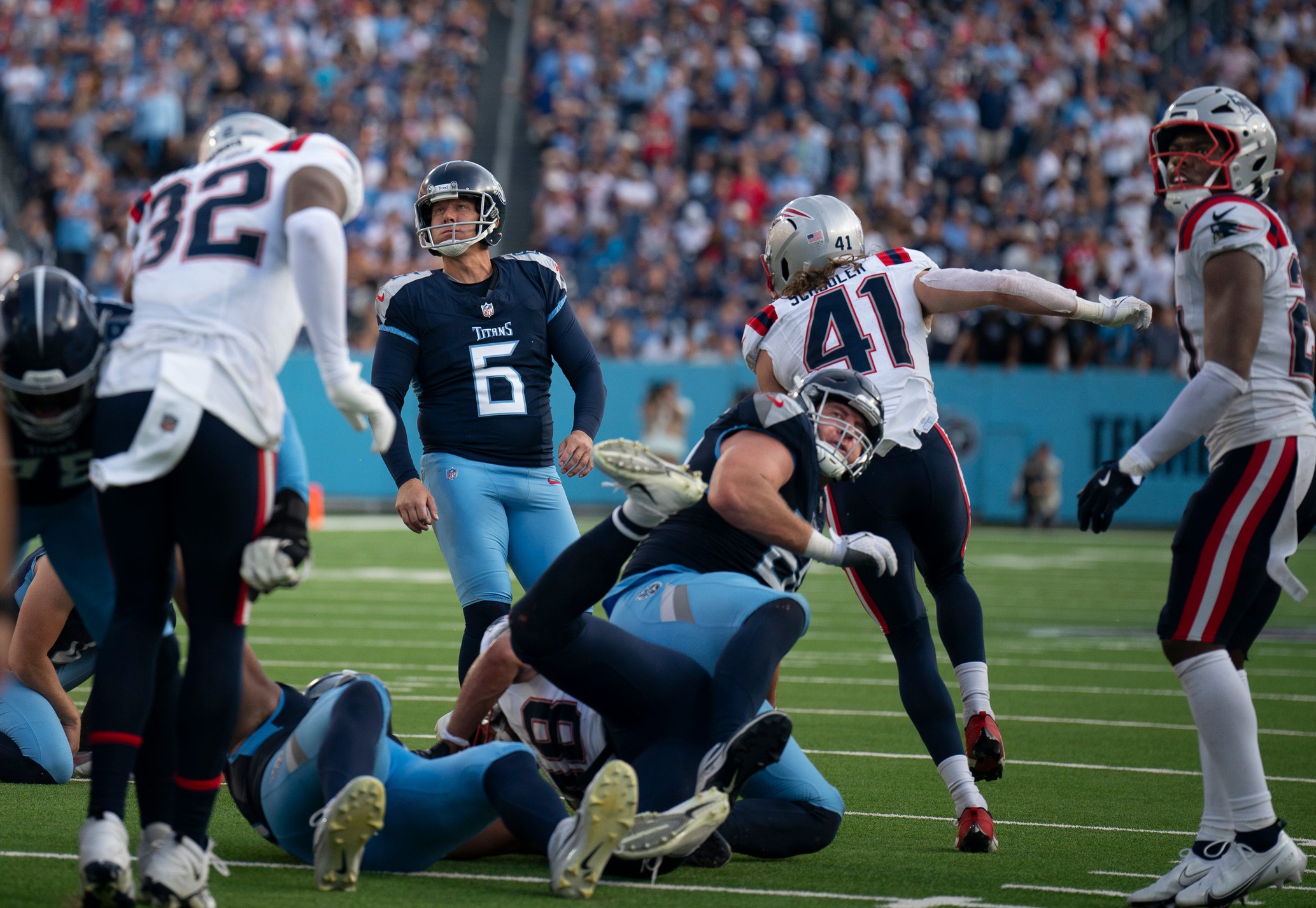
NFL overtime 2024 rules explained

Just one week into the 2024 NFL season, fans have already been treated to the intensity of an overtime thriller.
The Chiefs stormed down 70 yards in just 10 plays to claim the game-winning touchdown in overtime. They kept the Bucs off the field entirely.
Kareem Hunt clinched the victory with a two-yard run.
Similarly, in Week 1’s Sunday Night Football matchup, the Lions charged past the Rams, scoring a touchdown on their opening drive to seal the game. The Rams didn’t even get a chance to answer back since, in the regular season, a touchdown can end the game without the other team touching the ball.
If this scenario had happened in the playoffs, the Rams would have gotten a chance to even the score or pull off a comeback. But, since this was a regular-season game, Detroit’s touchdown immediately ended the contest.
Curious about how overtime rules differ between the regular season and playoffs? Let’s break it down.
At the end of the fourth quarter, the referee tosses a coin to decide which team gets the ball first in OT, with the visiting team calling the flip.
In 2023, the NFL made changes to how overtime is handled in playoff games.
This rule change stemmed from a legendary 2021-22 AFC Championship showdown between Kansas City and Buffalo. After winning the OT coin toss, the Chiefs scored immediately, clinching their Super Bowl spot, while the Bills never got a chance to possess the ball.
The controversial ending led NFL owners to rethink how much influence the coin toss had on playoff outcomes. In March 2022, Philadelphia and Indianapolis, who had both lost in similar overtime situations, proposed a rule change that won approval.
With the rule change, teams can now rethink their OT strategy in postseason games.
Now, a team that wins the coin toss might actually choose to kick the ball, knowing they’re guaranteed an offensive possession. This strategy could let them see exactly what’s needed to either win or tie the game. They might even end the game with a defensive score if the situation aligns.
Before the change, there were 12 overtime playoff games since 2010, with coin toss winners going 10-2, and seven of those wins came on the opening possession. None of these teams opted to kick off after winning the toss.
The record belongs to the 1971 Christmas Day game between Miami and Kansas City, stretching into double overtime and ending after a marathon 82 minutes and 40 seconds. Only six NFL playoff games have required multiple overtimes, the latest being Baltimore’s 2012 AFC Divisional victory over Denver.
By Week 6 of 2024, 107 regular season games have gone into overtime under the current rules, with 7 games (or 6.5%) ending in a tie.